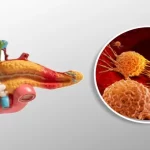
Cancer, a terrifying opponent in the realm of human health, continues to test the boundaries of medical science due to its intricate nature and the wide spectrum of variations seen across individuals and tumor types. The comprehension of cancer complications and the vital roles played by oncologists are consummate for effectively maneuvering through the complex pathways of cancer care. From the original stages of diagnosis through treatment modalities and ongoing management, the symbiotic relationship between patients and oncologists remains vital in casting personalized and impactful strategies against this complaint. Let’s explore this guide under the guidance of the best oncologist surgeon in Hyderabad Dr. M.S.S. Keerthi.
Understanding Cancer and Oncologists:
Cancer is indeed a multifaceted complaint that can affect varied organs and systems in the body. It’s represented by uncontrolled cell excrescency that can invade surrounding organs and spread to distant organs, a process known as metastasis. Oncologists are specialized physicians trained in diagnosing and treating cancer utilizing a range of tools and remedies.
Types of Oncologists:
- Medical Oncologists: These specialists concentrate on using systemic treatments similar to chemotherapy, targeted remedies, and immunotherapy. They work closely with patients to manage side effects and adjust treatment plans as required.
- Surgical Oncologists: These experts are professed to perform surgical procedures to remove tumors and affected organs. They may also perform biopsies to confirm cancer diagnoses.
- Radiation Oncologists: They specialize in using high-energy radiation rays to destroy cancer cells and shrink excrescences. They unite with other oncologists to integrate radiation remedies into comprehensive treatment plans.
When to Consult an Oncologist?
Consulting an oncologist is crucial at different stages of the cancer journey:
- Diagnosis After a suspicious finding on imaging or biopsy, consulting an oncologist helps confirm the diagnosis and determine the extent of the condition( stage).
- Treatment Planning Oncologists consider various factors, including cancer type, stage, inheritable markers, and overall health, to tailor treatment plans. They may also unite with other specialists in a multidisciplinary team.
- Follow-up Care Even after completing original treatments, regular follow-ups with an oncologist are essential for monitoring for recurrence or managing long-term side effects.
What Will Your Oncologist Do?
Oncologists provide comprehensive care throughout the treatment process:
- Diagnostic Workup: This includes reviewing medical history, conducting physical examinations, arranging imaging experiments( like CT scans, MRIs, PET scans), and performing biopsies as required.
- Treatment Recommendations: Based on individual findings, oncologists project substantiated treatment regimens which may carry surgery, chemotherapy, radiation remedy, immunotherapy, hormone remedy, or a combination of these.
- Supportive Care: Oncologists also address symptom management, supply emotional support, and conciliate care with other healthcare providers such as nutritionists, physical therapists, and counselors.
Surgery and Cancer Treatment:
Surgical interventions play a crucial role in cancer treatment:
- Primary Treatment Surgery may be the primary treatment for localized cancers, especially if they’re exploitable and haven’t spread significantly.
- Adjuvant or Neoadjuvant remedy In some cases, surgery is followed by more treatments like chemotherapy or radiation therapy( adjuvant therapy) to target any remaining cancer cells. The neoadjuvant remedy is given before surgery to shrink excrescences or enhance surgical outcomes.
- Palliative Surgery For advanced cancers, surgery may be performed to palliate symptoms or enhance the quality of life, indeed if a cure isn’t possible.
Do All Cancers Need Surgery?
While surgery is a cornerstone of cancer treatment, not all cancers require surgical intervention immediately or at all:
- Indispensable Treatments Some cancers respond well to nonsurgical treatments like chemotherapy, targeted remedy, immunotherapy, or radiation remedy.
- Advanced Stages Advanced cancers or those with metastasis frequently bear a multimodal approach combining surgery with other treatments for optimal issues.
- Individualized Approach Treatment opinions consider factors similar to excrescence position, size, inheritable factors, overall health, and case preferences.
In essence, the collaboration between patients, oncologists, and multidisciplinary teams ensures substantiated and effective cancer care. As Dr. MSS Keerthi highlights, understanding the roles of different oncologists, the timing of consultations, treatment options beyond surgery, and the evolving landscape of cancer care, individuals can navigate their cancer journey with knowledge and confidence. Always remember, that seeking timely medical advice and staying informed are crucial steps in managing cancer effectively.







